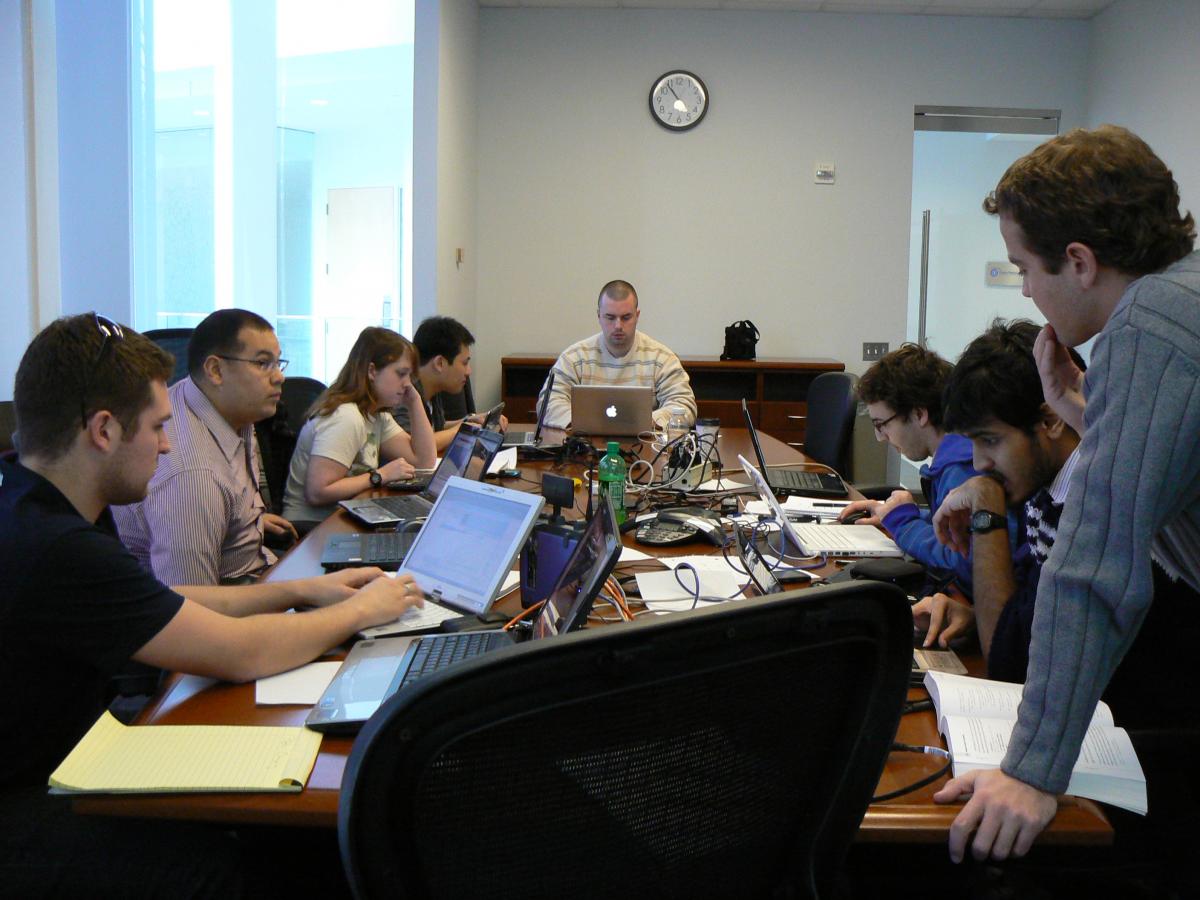To produce graduates who can prevent new cybersecurity problems—not just fix old ones—George Mason University this fall will become the first college in the country to offer a cybersecurity engineering degree that focuses on cyber-resilience engineering design.

Other cybersecurity programs use a more reactive approach, teaching students to solve problems or mitigate the risk of an existing system. Using a more proactive approach to system design and development can minimize the possibility of a cyberattack in transportation, government, defense, energy, finance, health care and any number of industries.
The State Council of Higher Education for Virginia, the group that approves new academic programs, was so enthused about George Mason's new bachelor of science in Cyber Security Engineering that it made it the first proposed program in state history to be designated with a "Facilitated" Approval.
The Facilitated Approval is a new process that allows a program that meets all of the justification requirements to be approved by the state council staff, rather than council itself.
Northern Virginia and the greater Washington, D.C., area already provide a wealth of cybersecurity job opportunities both in the private and public sectors. Federal spending for cybersecurity is projected to be $13.3 billion by 2015. The Mason degree will enhance the state's efforts to attract even more cyber jobs to Virginia.
"Some of the companies I've talked to said we'll gladly hire the students you graduate with this degree," says Peggy Brouse, a professor in Mason'sVolgenau School of Engineering and the writer of the proposal for the new program. "We already have companies that want to start putting people in as interns. We have all kinds of incoming students who are interested in the degree. The support has been overwhelming."
Although the degree program does not officially start until January 2015, students can begin taking their core classes for the major this fall. The courses specific to the degree will go by the abbreviation "CYSE" in the Mason catalog.
Before building the curriculum, Brouse consulted employers about what skills and expertise they would most desire from cybersecurity engineers. Mason graduates with this degree will be equipped to develop effective and affordable systems with security "engineered in" from the concept phase, through design, and into implementation and usage.
"Why not have somebody whose job is to make a system as cyber-resilient as they can from the very beginning, whether we're talking about airplanes or banking systems or infrastructure?" Brouse says. "Proactive instead of reactive. We also need the reactive, because we already have millions of systems out there that have been developed and are being attacked. What I'm talking about is the future. We've got to start thinking differently."
Because the cybersecurity engineering degree draws on faculty from several Volgenau departments, the program is based out of the dean's office. The 126 credit hours that the degree requires is six more than what the typical Mason engineering major needs.
Volgenau is hitting cybersecurity from all angles. The engineering school offers summer camps for children and outreach to high school students, engages in continuous extensive networking with cyber industry employers and also can claim the first student-run cybersecurity organization in the country. The Volgenau-based Center for Secure Information Systems, established in 1990, was the first academic center in security at a U.S. university.
The trendsetting continues with the forward-thinking cybersecurity engineering degree.
"We can always say we were the first one to offer this in this way," Brouse says. "Other colleges and universities are going to quickly add this to their curriculum. There's no doubt about it."
Students interested in the cybersecurity engineering program should contact Peggy Brouse, the director of the new program, at pbrouse@gmu.edu or 703-993-1502.
A version of this story by Preston Williams appeared in Mason News on July 17, 2014.
